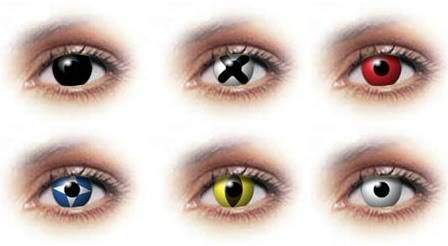
If your child has vision problems, it’s very likely they’ll eventually bug you about contact lenses. Many people who wear glasses feel self-conscious about the way they look with their spectacles, and while these old image associations are changing with the times, kids feel the sting of this quite a bit more than adults. Managing social pressure is just part of growing up.

Soft contact lenses can help boost their self confidence and may be more practical than traditional glasses, especially for children who are athletic.
But they also take some upkeep and basic maintenance, and if used improperly, damage to the eyes is possible. So, are contacts safe enough for kids – or more specifically, for your kid? Here are some considerations for parents trying to navigate the eye care terrain.
1. “How Old?” Well, That Might be the Wrong Question
A good “ballpark” age for a child to take on the responsibility of contacts is around 12 or 13.
That said, some children can handle them without assistance by the age of 8, so it may not be a matter of years at all. In fact, many experts say that younger kids adapt quicker and are more enthusiastic about their contacts due to the self esteem it gives them. Kids are also less likely to suffer dry eyes and other irritations experienced by many adults.
So what is a better way to know if your kid is ready?
2. Maturity is the Best Indicator
Contacts come with a great personal responsibility, yes, but whether or not your kid will adapt well to them often depends on their personality, temperament, and life habits.
Pay attention to how they conduct themselves with their current obligations. Do they keep their room clean and meticulous, or are they sloppy and constantly needing reminders to clean? How is their hygiene? If they have pets, do they keep up with the associated chores?
The answers to these questions are good indicators of how well they’ll handle soft contacts.
3. Caution Your Child Against Hasty, Ego-Driven Mistakes
While it’s great that contacts can offer some additional self esteem, many children are too image-conscious and reluctant to part with them even temporarily once they disassociate from glasses. Thus, kids often cut corners, putting in contacts after makeup has been applied, borrowing contacts from friends, putting in contacts with inappropriate fluids (water or even saliva) on a whim, and using contacts even if their eyes are red or irritated.
Make sure they understand the “rules,” know them yourself, and stay on top of them if you catch them making hasty decisions to avoid the glasses.
4. Contacts Aren’t Always Good for Allergy-Prone Children
If your child seems particularly susceptible to allergies or experiences allergic reactions on a seasonal basis, contacts may not be a good idea. They may very well irritate their already-irritated eyes and cause more itching and burning. Long-term damage is even possible if the irritation is ignored.
5. The Decision Need Not be Final
Remember, getting contacts for your child is not necessarily a permanent decision. If they don’t take to them well, experience discomfort, or aren’t maintaining them responsibly, you can always go back to glasses until a later date. Or you can alternate between contacts and glasses as needed – many people who wear contact lenses find this is the most realistic approach to eye care anyhow.
Want to find out more about what it takes to maintain soft eye contacts properly? Click here for more information about the realities of ditching the glasses.
